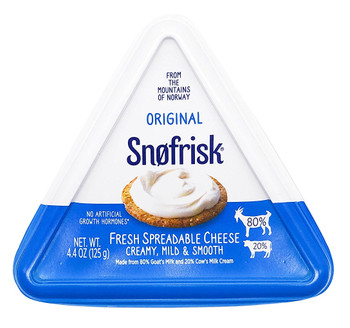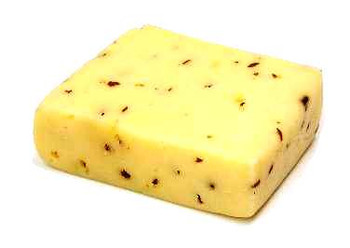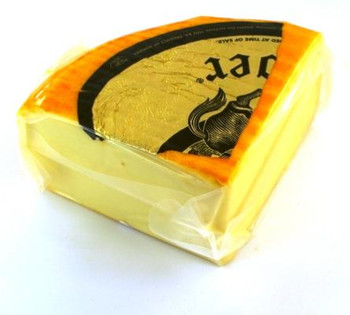The cheese is well suited as a spread on bread, crackers and waffles. Bruno Sten enhances the taste of sauces, casseroles and other dishes.
Gjetost cheese, pronounced 'YAY-toast' by Americans or 'yed-OOST' by Scandinavians, is also known as Brunost cheese. Gjetost is a brown Norwegian cheese made of goat's milk or a blend of goat and cow's milk. Gjetost Cheese from Norway is produced by slowly heating a vat of whey, cream and milk. This is why Gjetost is sometimes called a whey cheese. The caramel brown color of Gjetost Cheese is a result of the caramelization of the milk's sugars during this heating process.
Gjetost Cheese History
Gjetost Cheese originated in the Gudbrandsdalen valley of Norway over one hundred years ago. Gjetost has always been sweet like butterscotch with a dense, rich texture. Gjetost is formed into rindless squares or cylinders, and is best when sliced wafer thin and enjoyed open-faced on Norwegian flatbread served with fresh fruit. It is no wonder children are drawn the taste of this unique, sweet-like-fudge cheese. Often enjoyed as a breakfast cheese in Norway, Gjetost also makes an excellent snack and is the perfect dessert cheese.
This unique Norwegian brown cheese is also known as Brunost, which is simply Norwegian for Brown Cheese. The Ski Queen variety is a blend of cow and goat's milk, whereas the Ekte Gjetost Cheese from Norway is made from 100% goat's milk. Gjetost is packed with energy and is extremely tolerant of temperature fluctuations. Because of these benefits, Gjetost is a preferred snack for Norwegians skiiers, who pack it in their backpacks and snack on it while on the trails. This is where the Ski Queen brand name comes from, and may be one of the secrets to the international success of Norwegian cross-country skiiers.










